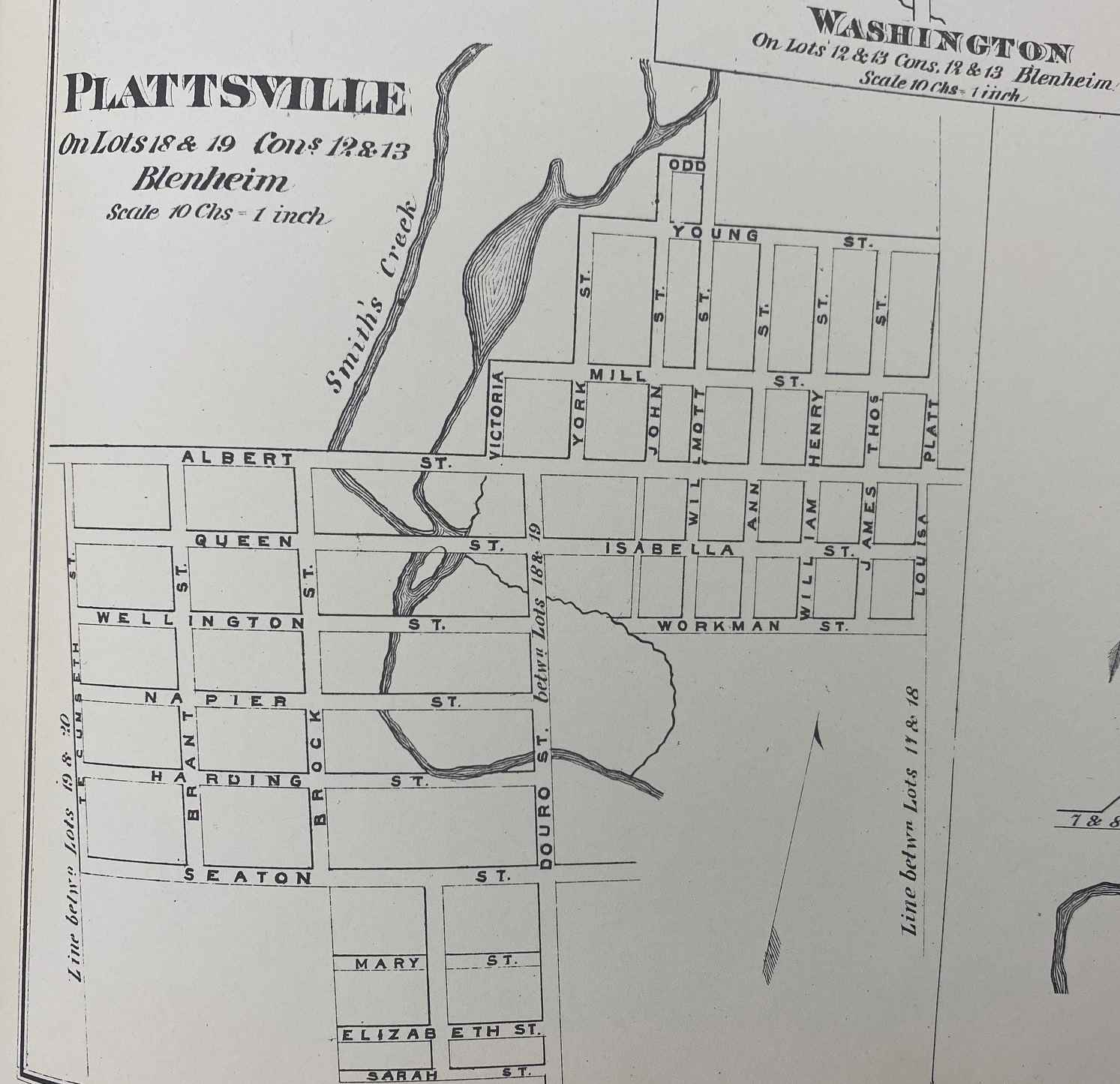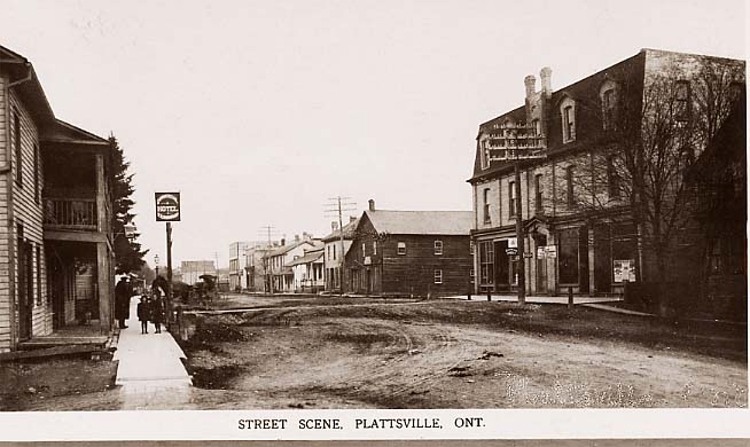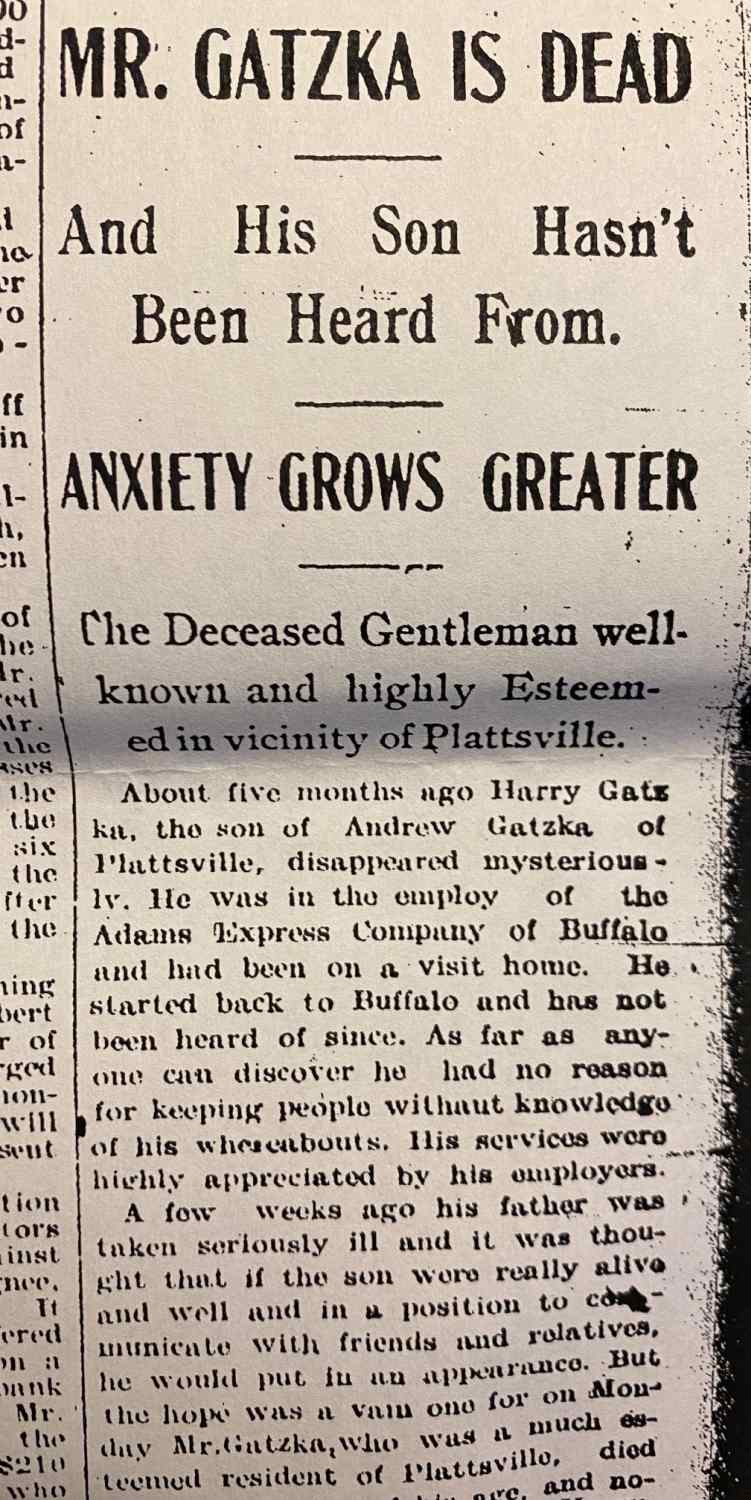Andrew Gatzka - Plattsville Businessman
Andrew Gatzka - Plattsville Businessman
A short biography on Plattsville businessman Andrew Gatzka, and the mystery of his missing son.
By Liz Dommasch, Archivist
Andrew Gatzka was born in Oppel, Prussia on October 28, 1826, and immigrated to Canada in 1856. He would settle near Washington in Blenheim Township and work at his trade, shoemaking, with F.R. Motherall, before settling in Plattsville, a couple of years later, where he set up his business for himself.

Map of Plattsville, Ontario. From the "Historical Atlas of Oxford County", 1876, pg. 57.
Along with his shoemaking business, he established a livery stable where he prospered eventually being awarded the contract for carrying mail between Washington and Bright. This business would later be known as Gatzka and Son. He would operate the shoe business as well as his livery business, with his sons Charles and Edward, on the south side of Albert Street.

A postcard featuring Plattsville, Ontario. From the Oxford Historical Society postcard collection. [J. Gruszka postcard 0358]
A member of the Evangelical Church in Plattsville, Andrew Gatzka would pass away on December 10, 1900, following complications of diseases. According to the Woodstock Sentinel-Review, Mr. Gatzka was “a model man and by industry and frugality amassed a competency. He was honored and well respected by all who knew him.” Buried at the Plattsville Cemetery, Andrew Gatzka left behind seven grown children, and his wife, Susannah. Interestingly enough, at the time of his death, his son Henry had been mysteriously missing for several months. An employee of the National Express Company in Buffalo, N.Y., he had disappeared after a trip home. The newspaper at the time noted that the family hoped that if he was really alive and well and in a position to communicate with friends and relatives he would put in an appearance. However, this was sadly not the case, and no further trace of him can be found in the records available at the archives and online.
Andrew Gatzka left behind seven grown children, and his wife, Susannah. Interestingly enough, at the time of his death, his son Henry had been mysteriously missing for several months. An employee of the National Express Company in Buffalo, N.Y., he had disappeared after a trip home. The newspaper at the time noted that the family hoped that if he was really alive and well and in a position to communicate with friends and relatives he would put in an appearance. However, this was sadly not the case, and no further trace of him can be found in the records available at the archives and online.
By 1900, the village of Plattsville was thriving with a population of 900 people. The Village, the largest in Blenheim Township, contained several large Mills, a large Cabinet Factory, originated operated by Noah Fries & Co in 1856; a woolen factory, established in 1862 by James Crosbie; and a Carriage and Wagon Factory established in 1865 by Thomas Seaman. There were also three churches; three hotels; a school, as well as a number of stores along Albert Street including Albert Smart’s bicycle shop, a confectionary shop owned by Mrs. McGraw, William Fenn’s meat market, and Motherall’s Jewelry Store and Barber Shop.
